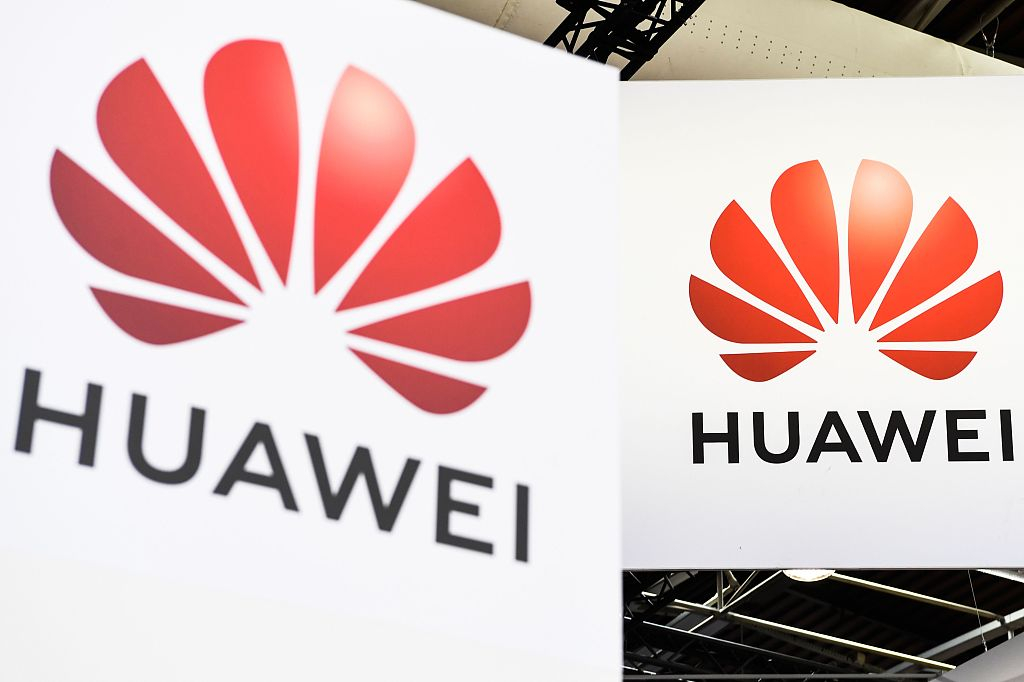
Opinion
20:08, 17-May-2019
White House Huawei ban: Much ado about nothing?
Updated
22:56, 17-May-2019
Andy Mok

Editor's note: Andy Mok is Managing Director at Red Pagoda Resources and a non-resident fellow at Center for China and Globalization. The article reflects the author's views, and not necessarily those of CGTN.
This week, Donald Trump finally issued an executive order that was drafted months ago to restrict telecommunications equipment and services from foreign companies that could pose a threat to national security. In parallel, the U.S. Commerce Department added Huawei and 70 of its affiliates to its list of firms that are deemed a risk to national security. Companies on this so-called Entity List are prohibited from buying American components and technologies without a pre-approved license from the U.S. government.
Many observers termed this move the U.S.' “nuclear option” because it is viewed as a death penalty for foreign technology companies that depend on key American components. For example, ZTE was forced to suspend operations until this ban was lifted. However, while these moves may appear draconian, the reality may not be as alarming and in retrospect may turn out to be much ado about nothing.
There are two reasons to believe the U.S. will not realize its intentions of stopping or even slowing down Huawei and may reverse or suspend these actions.
First, Huawei is big. In 2018 its revenues reached 107 billion U.S. dollars, a 20-percent increase over 2017. In the first quarter of 2019, it posted revenues of almost 27 billion U.S. dollars, which was a 39 percent year-on-year growth, with these results including shipments of more than 70,000 5G base stations to markets worldwide.
As such a large company it is also one of the most important customers for publicly listed American companies such as Broadcom, Intel, Flex, Qualcomm and others. Shares in these companies have already fallen in response to these governmental actions.
Given the importance that the White House attaches to the performance of the stock market and the vigor and ruthlessness with which the Democrats want to unseat him, the danger to President Trump of any weakening in support from the business sector is substantial. Also, the shares of many of these companies are the bedrock of American pension plans.

Logos of the Chinese telecom group Huawei is displayed during the Vivatech startups and innovation fair, in Paris on May 16, 2019. /VCG Photo
Logos of the Chinese telecom group Huawei is displayed during the Vivatech startups and innovation fair, in Paris on May 16, 2019. /VCG Photo
When Americans realize that their president is taking a baseball bat to the retirement security of ordinary Americans, the political backlash could be devastating and irreversible.
One can easily imagine Democrat push polling in Michigan, Wisconsin, and Pennsylvania vilifying President Trump to millions of Americans already deeply anxious about their futures: Are you aware that President Trump's recent Huawei ban will devastate the 401(k)s of hardworking Americans whose nest eggs consist of some of the most successful and innovative U.S. tech companies? Do you know that these companies may never recover as Huawei develops alternative sources for these products? Do you support this policy?
Next, these moves unmistakably demonstrate the political and prejudicial animus of the administration towards Huawei as a proxy for China and all the fears, resentments and insecurities of the United States that this confounding and indecipherable nation represents.
As such, they are one of the final pieces of a mosaic that makes the picture clear for all in the global community to see. Since World War II, American foreign policy has largely been a series of missteps and miscalculations. Nowhere has this been more true than with respect to China in the past few years: AIIB, BRI, 5G and now the Huawei executive order.
These previous efforts have all backfired. But not only have they fallen short of their intended goals, they have also eroded the credibility and legitimacy of the United States in key regions of the world such as South Asia, Africa, Eastern and even Western Europe. While the U.S. has long been able to act unilaterally, in this era of multipolarity, voices in other capitals carry increasing weight and these voices can no longer be ignored.
Given the worldview of this administration, President Trump's executive order is not surprising. However, if the tenets of political survival and the weight of global opinion are a useful guide, this may be just a temporary mistake to be replaced by a less antagonistic and more sustainable approach.
(If you want to contribute and have specific expertise, please contact us at opinions@cgtn.com.)

SITEMAP
Copyright © 2018 CGTN. Beijing ICP prepared NO.16065310-3
Copyright © 2018 CGTN. Beijing ICP prepared NO.16065310-3